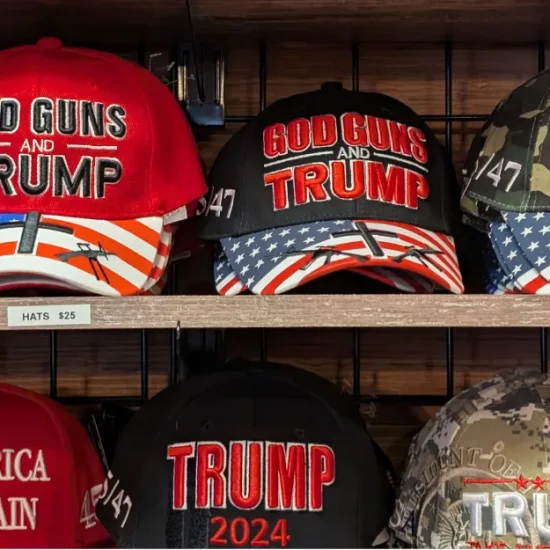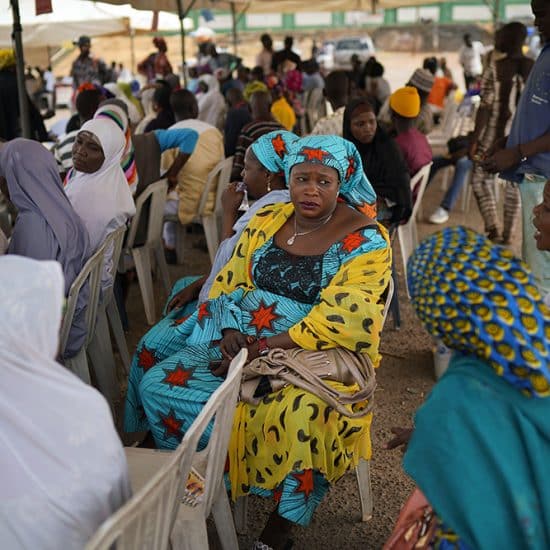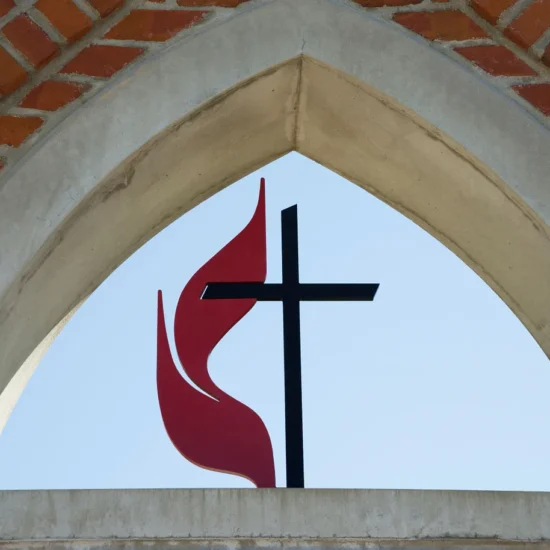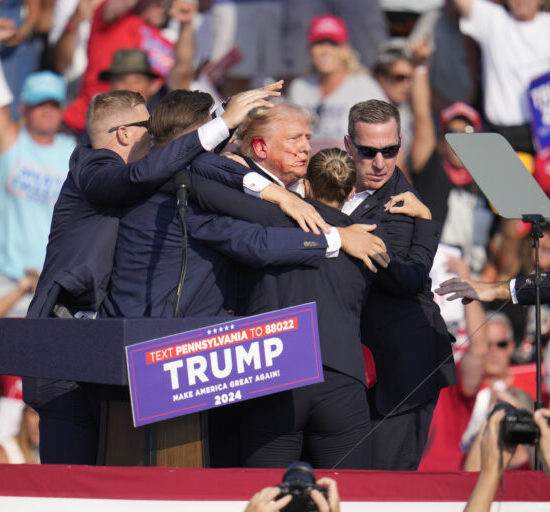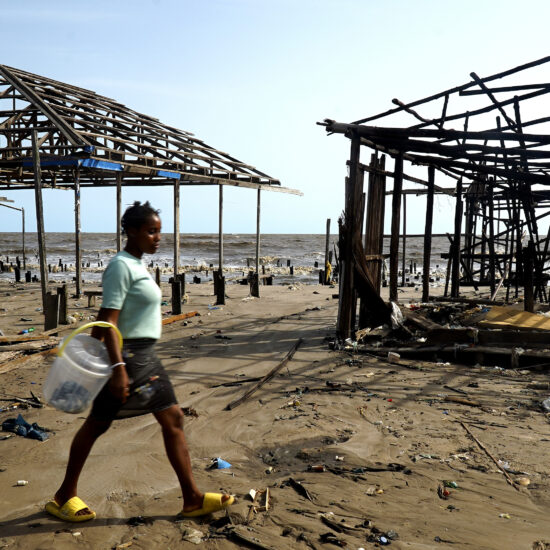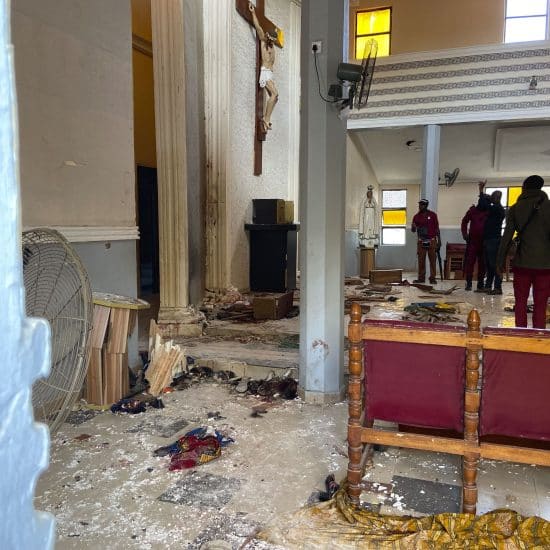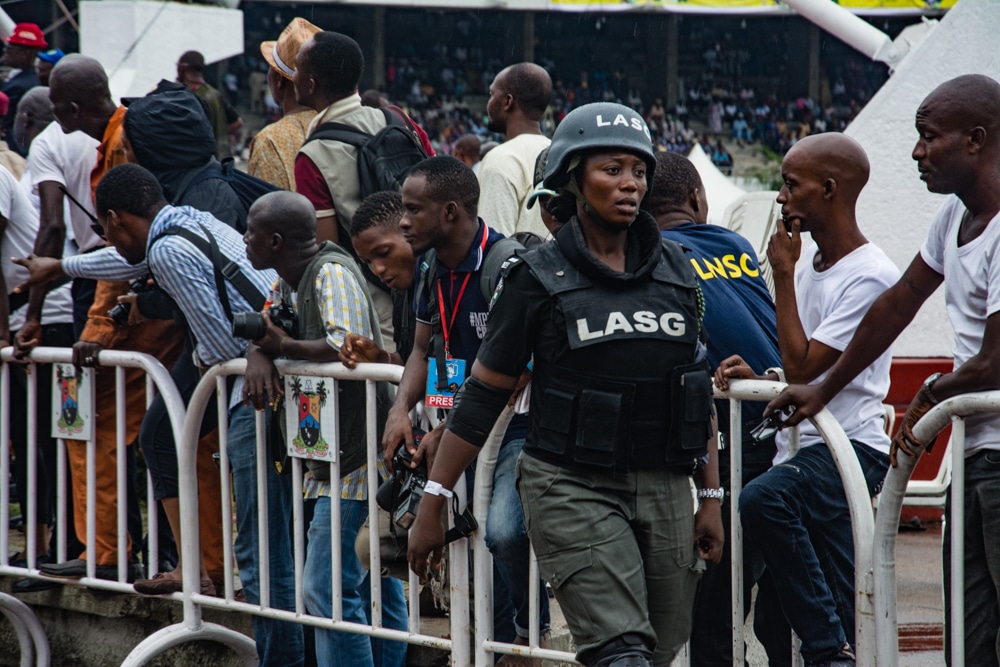
NIGERIA (BP) – An untold number of evangelical Christians are likely among growing deaths in Nigeria amid violence surrounding peaceful protests against police brutality, an advocate for Christians in Nigeria told Baptist Press.
Police attacked peaceful protestors Oct. 20 at Lekki Toll Gate bridge in Lekki, Lagos. The protestors were marching against alleged longstanding police brutality and killings by Nigeria’s Special Anti-Robbery Squad (SARS), according to news reports. The situation has fueled prayer walks and marches against economic insecurity and violence in other parts of the country, Christian Solidarity Worldwide representative Khataza Gondwe told Baptist Press Wednesday (Oct. 28).
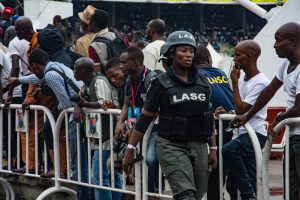
A Nigerian police officer in Lagos in 2016. (Creative Commons)
Police confirmed seven deaths of Christians in Abuja, according to Morning Star News in a report Oct. 23. Morning Star said at least three Christians were killed in Abuja. Violent counter-protestors and “Muslim hoodlums” have also burned at least three church buildings in the capital city of Abuja and in Plateau and Kano states, Morning Star said in its report.
At least four Christians have been killed in Kano, Gondwe told Baptist Press from her office in London.
“It’s still early days to find out who has been killed,” said Gondwe, Christian Solidarity Worldwide’s Africa and Middle East team leader. “Nobody knows who has been killed in Lekki or elsewhere. The four that were killed, definitely (Christians) were killed in Kano state.”
Particularly, when the Christian Association of Nigeria sponsored prayer walks in Plateau, Kano, and Kogi states Oct. 19-20, Gondwe said Muslims joined Christians in prayer because insecurity, violence, and lawlessness are impacting both religious groups. But criminal gangs, referred to as “thugs,” interrupted the prayer walk in Koji and attacked Christians as they retreated to a church, violently beating several pastors. The four Christians are believed to have been killed in Kano Oct. 19.
“We can’t really give you numbers,” Gondwe said, “particularly because this movement was across the board. There were no divisions along religious lines. There have been efforts to divide them along religious lines.”
“It’s pretty unusual” for Muslims to join in prayer with Christians, Gondwe said, “but in times like this when everybody’s marching, and everybody’s marching for the same thing, it would be quite straightforward. I mean they wouldn’t all be praying to the same God, but it’s this coming together to pray because we’re all in this.”
“People are pretty tired of the insecurity. Everybody’s suffering from it. Everybody’s being kidnapped. Everybody’s having to pay ransoms. Everybody’s losing people on highroads because armed robbers … are there, attacking and killing people,” Gondwe added.
Gondwe described Kano as one of the most religiously volatile Nigerian states. The four were killed in a Christian district in the overwhelmingly Muslim Kano. Christian churches continue to call for justice, Gondwe said, although prayer walking will be difficult in the current climate of unrest.
Protests began in early October against SARS forces after cellphone video surfaced of SARS police appearing to kill a young man in broad daylight when he refused to turn over his cellphone. According to longstanding accusations dating back several years, SARS forces routinely have robbed and attacked private citizens instead of protecting them.
Gondwe said the death toll from the police attack on protestors in Lekki, recorded on personal phone cameras, is unknown, but has been reported by Nigerian authorities as one or two.
Amnesty International and others have called the Lekki attack a “massacre.”
“What happened at Lekki Toll Gate has all the traits of the Nigerian authorities’ pattern of a cover-up whenever their defense and security forces commit unlawful killings,” said Osai Ojigho, Amnesty International’s country director.
“One week on, the Nigerian authorities still have many questions to answer: who ordered the use of lethal force on peaceful protesters?” Ojigho said. “Why were CCTV (security surveillance) cameras on the scene dismantled in advance? And who ordered electricity being turned off minutes before the military opened fire on protesters?”
Nigeria President Muhammadu Buhari’s office announced Oct. 11 that SARS had been disbanded, but Gondwe and others said the forces have continued attacks after previous such announcements. Protestors continue to call for an end to police brutality, regardless of whether such brutality is connected to SARS.
The young adults protesting in Lekki are “in deep shock,” Gondwe said. “I don’t think they expected anything like that to happen.”
Violence related to the SARS protests and other police brutality is jelling with violence in other areas of Nigeria from militant Fulani herdsmen and Boko Haram terrorists, Gondwe said.
“The two parts of Nigeria were pushing for different things,” she said, “but definitely in the center and north, Christians are suffering terribly. …Pray that government is held to account for every insecurity, every source of violence. whether it is religious violence and their inaction to it, whether it is violence by banditry (or) violence by police.”

